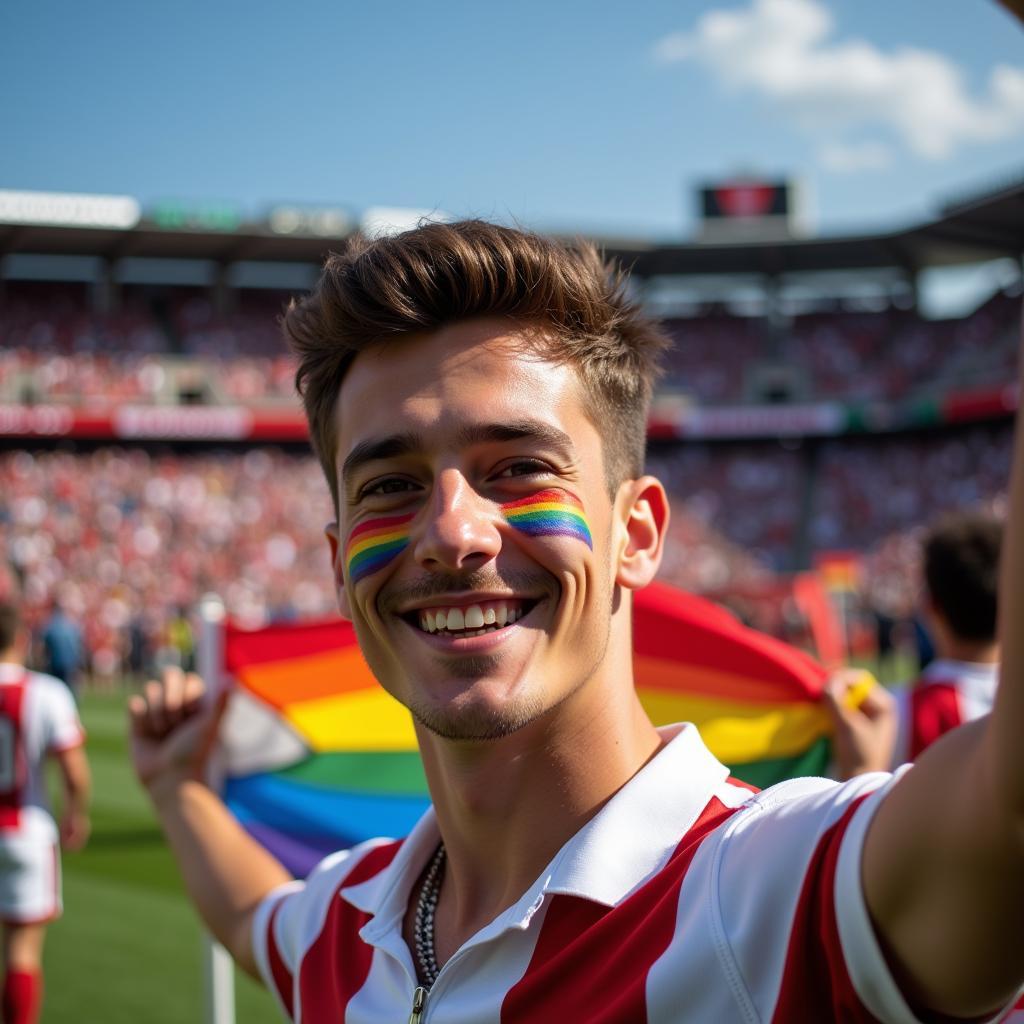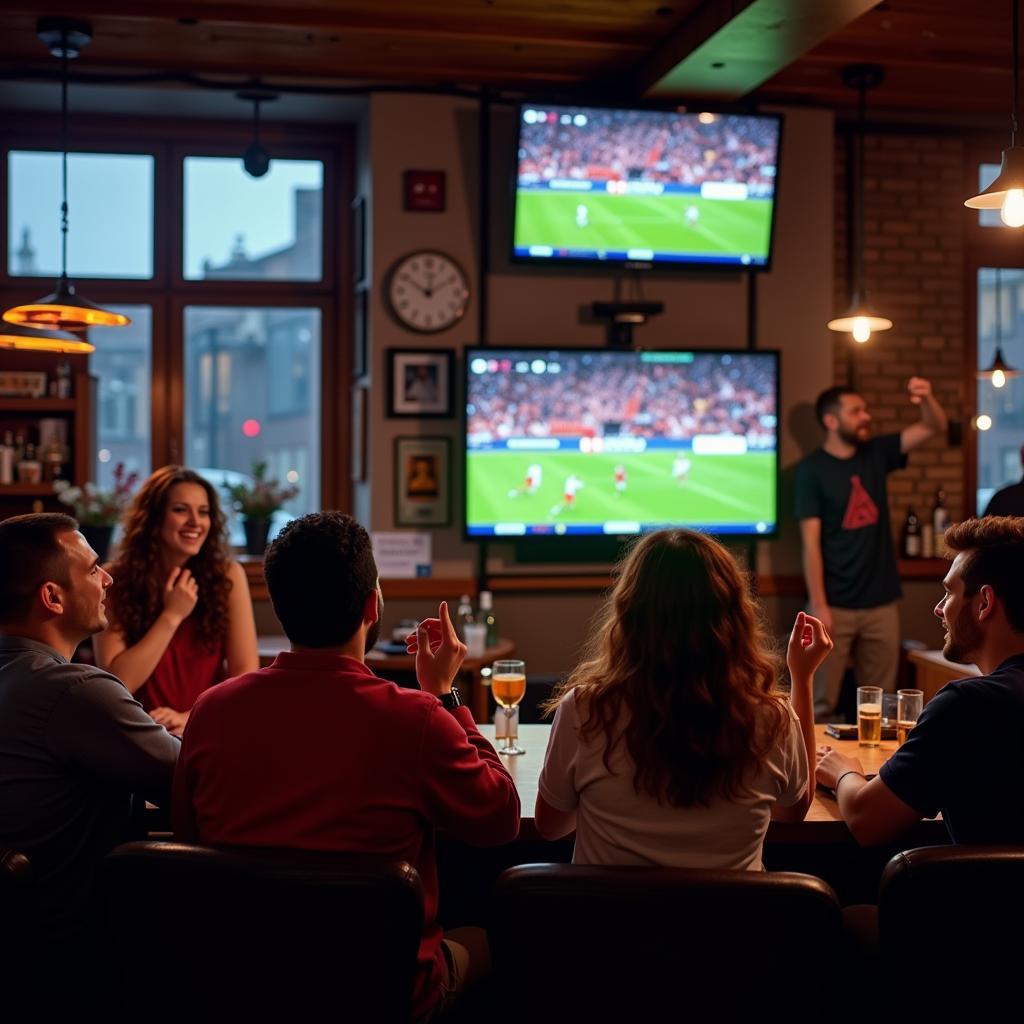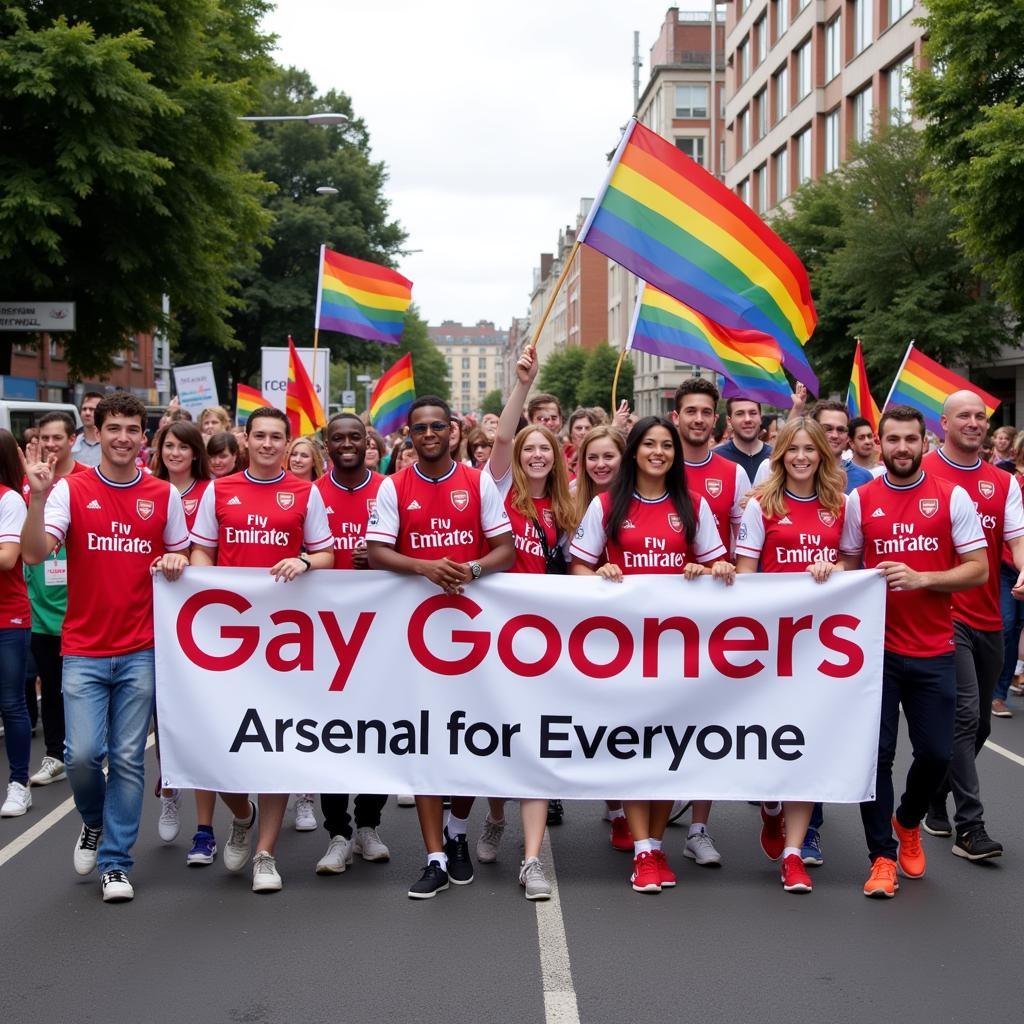Being a football fan is often about passion, camaraderie, and unwavering support for your team. But for many LGBTQ+ individuals, navigating the world of football fandom can feel like navigating a minefield of heteronormativity and, at times, outright hostility. The truth is, you’re not alone. This article explores the experiences of gay football fans, addresses the challenges they face, and highlights the growing movement for inclusivity in the sport we love.
 Football Fan with Pride Flag
Football Fan with Pride Flag
The Closet and the Stands: A Difficult Balance
For many gay football fans, the decision to come out can be fraught with anxiety, especially within the context of a sport that has historically been seen as a bastion of masculinity. The fear of rejection from fellow fans, the potential for homophobic chants or abuse, and the feeling of not belonging can be incredibly isolating.
 Friends Enjoying Football Together
Friends Enjoying Football Together
“I remember feeling like I had to lead a double life,” says Alex, a lifelong Manchester United supporter. “I was out to my friends and family, but at Old Trafford, I felt like I had to put on a different persona, hide a part of myself.”
This feeling of having to compartmentalize their identity is a shared experience for many LGBTQ+ fans. The pressure to conform to masculine norms and the fear of being ostracized can be stifling, preventing them from fully embracing their love for the game.
Challenging the Status Quo: The Rise of LGBTQ+ Fan Groups
The good news is, the landscape is changing. In recent years, there has been a surge in the number of LGBTQ+ fan groups popping up around the world. These groups provide a safe space for fans to connect, share their experiences, and challenge homophobia within the sport.
One such group is the Gay Gooners, an Arsenal supporters’ group that has been instrumental in promoting LGBTQ+ inclusion within the club and beyond. Their visibility and activism have helped to create a more welcoming atmosphere for LGBTQ+ fans at The Emirates Stadium.
 Gay Gooners Pride March
Gay Gooners Pride March
The rise of these groups sends a powerful message: LGBTQ+ fans are here, they are proud, and they deserve to be a part of the football community without fear of prejudice.
The Fight Continues: Towards a Truly Inclusive Game
While the progress made in recent years is undeniable, there’s still a long way to go. Homophobic language and behavior persist in stadiums, and openly gay players in men’s professional football remain a rarity.
The fight for true inclusion requires a multi-pronged approach. Football associations, clubs, and players need to take a proactive stance against homophobia, implementing stricter sanctions for discriminatory behavior and fostering a culture of acceptance.
Moreover, visibility and representation matter. Seeing openly LGBTQ+ individuals in positions of influence within the sport, whether as players, coaches, or commentators, can have a powerful impact on challenging stereotypes and creating a more inclusive environment.
You Belong Here: Finding Your Football Family
To all the LGBTQ+ fans out there, remember this: You are not alone. Your love for the beautiful game is valid, and you deserve to experience the joy and camaraderie of football without fear or prejudice.
If you’re struggling, reach out to an LGBTQ+ fan group. Find your tribe, connect with like-minded individuals, and remember that your voice matters. Together, we can create a future where football is a welcoming and inclusive sport for everyone.
FAQ
1. Are there any openly gay players in men’s professional football?
While there have been openly gay players in women’s football, there are currently no openly gay players in men’s professional football.
2. What can I do if I witness homophobic abuse at a football game?
If you witness homophobic abuse, report it to a steward or a member of stadium staff. You can also report the incident to the relevant football authorities.
3. How can I find an LGBTQ+ fan group near me?
You can find a list of LGBTQ+ fan groups on the website of the Football Supporters’ Association (FSA).
4. What can clubs do to create a more inclusive environment for LGBTQ+ fans?
Clubs can implement stricter sanctions for homophobic abuse, provide LGBTQ+ awareness training for staff and stewards, and work with LGBTQ+ fan groups to create a more welcoming atmosphere.
5. Is it safe to be an openly gay football fan?
While there have been significant strides in LGBTQ+ inclusion in football, it’s important to be aware of your surroundings and take precautions if necessary. Joining an LGBTQ+ fan group can provide a sense of safety and community.
Need Help? Contact us!
Phone Number: 0903426737
Email: fansbongda@gmail.com
Address: Tổ 9, Khu 6, Phường Giếng Đáy, Thành Phố Hạ Long, Giếng Đáy, Hạ Long, Quảng Ninh, Việt Nam.
We are available 24/7 to assist you.


